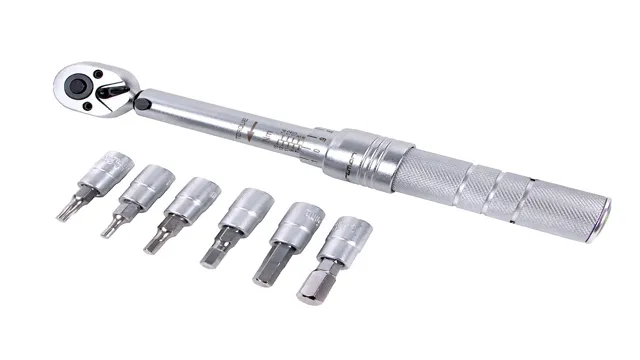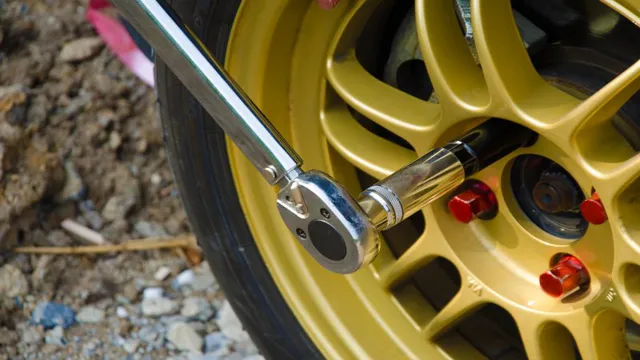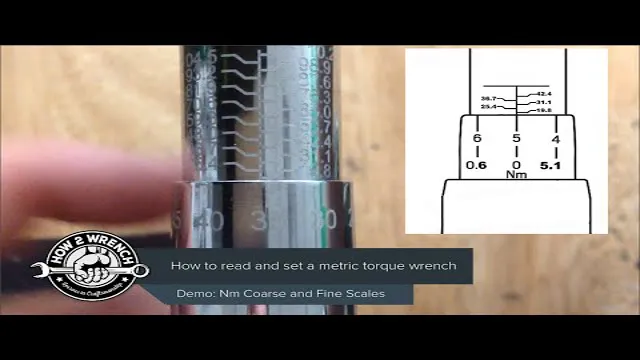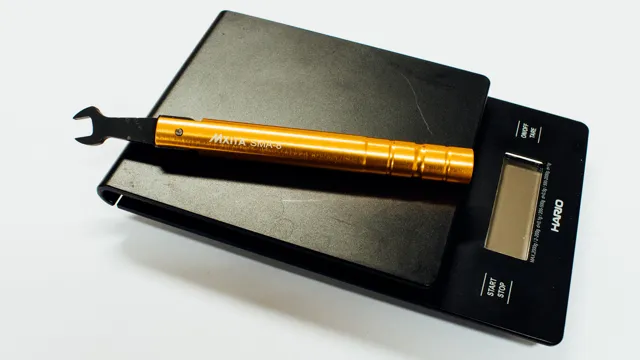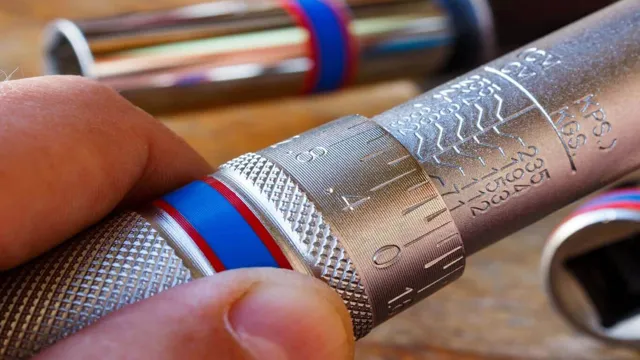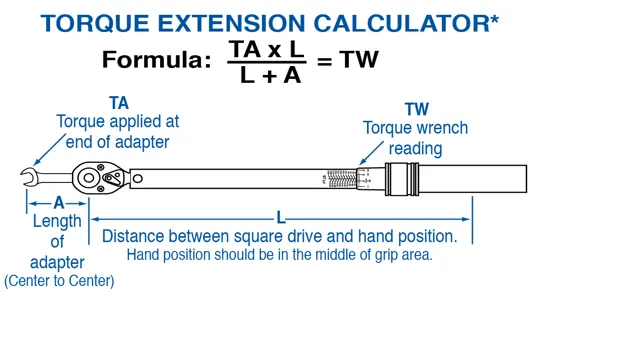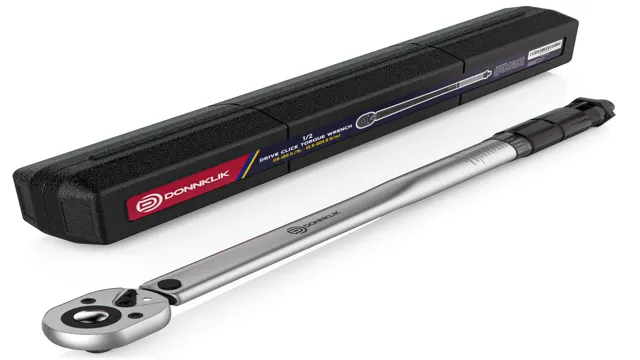When to Use a Torque Wrench: Essential Tips for Precision Tightening
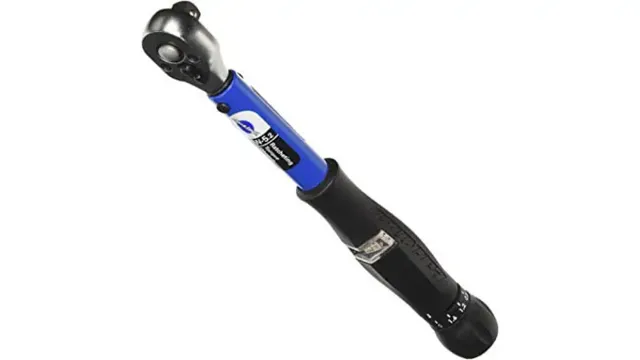
As a DIY enthusiast or a professional mechanic, you know the value of having a sturdy set of tools for your work. A torque wrench, for instance, is a critical tool for tightening nuts and bolts in any piece of equipment to a specific and predetermined level of tightness. Using the right torque level is crucial for fastening your machinery or vehicle’s different nuts, bolts, or screws, and over-tightening can damage the components, while under-tightening can cause them to loosen and compromise their operation.
So, when do you need to use a torque wrench? Keep reading to find out!
What is a Torque Wrench?
When working with fasteners, it’s important to use the correct amount of torque to ensure they’re properly tightened. That’s where a torque wrench comes in handy. It’s a tool that measures the amount of force applied to the object being tightened, allowing for precise and accurate tightening.
But when should you use a torque wrench? Anytime you’re working with critical or sensitive fasteners, such as those in a car engine or on a bicycle frame, it’s essential to use a torque wrench. Over- or under-tightening can lead to serious problems, like stripped threads or broken bolts. But with a torque wrench, you can ensure that the fasteners are tightened to the correct specification, helping to prevent costly repairs down the line.
So next time you’re working on a project that involves tightening bolts to specific specifications, remember to use a torque wrench to get the job done right.
Definition and Function
A torque wrench is a hand tool that is used to apply a specific amount of force or torque to a fastener to achieve the desired tightness. It is essential in situations where over-tightening or under-tightening can cause damage, and accuracy is crucial. The torque wrench comes in various types, including beam type, click type, hydraulic type, dial type, and digital type.
Each type has its advantages and disadvantages. For instance, the click type is the most popular due to its ease of use and accuracy. It “clicks” when the desired torque is achieved, making it easy to detect when to stop.
Torque wrenches are valuable in various industries, including automotive, aerospace, and construction, where tightness and accuracy are paramount. Overall, the torque wrench is an excellent tool for achieving the desired tightness and avoiding costly mistakes that can arise from incorrect torque settings.
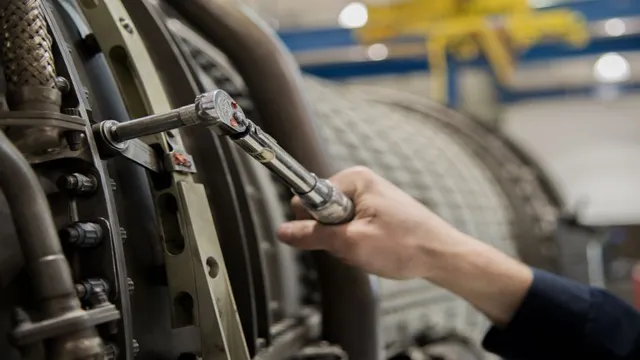
Types of Torque Wrenches
A torque wrench is a type of wrench used to apply a specific amount of force or torque to nuts, bolts, or other fasteners. The torque wrench is a crucial tool for accurate and efficient work as it helps prevent over-tightening or under-tightening of fasteners, which can lead to damage or failure of equipment or machinery. There are different types of torque wrenches available in the market, including beam, click, dial, and electronic torque wrenches.
Beam torque wrenches use a calibrated beam to measure the torque while click torque wrenches produce a clicking sound when the desired torque is achieved. Dial torque wrenches have a gauge to indicate the torque applied, while electronic torque wrenches use a digital display to show the torque value. Each type of torque wrench has its advantages and drawbacks, and it’s essential to choose the right type for the job at hand.
Why Use a Torque Wrench?
When to use a torque wrench? Well, it all depends on the task at hand. A torque wrench is a specialized tool used to tighten bolts and nuts, and it’s commonly used in the automotive and mechanical industries. The main reason to use a torque wrench is to ensure that the fasteners are tightened to the correct torque specification.
Over-tightening a bolt can lead to damage and can cause the bolt to strip, while under-tightening can cause the bolt to loosen and fail. Additionally, some applications require a specific torque specification to ensure safety and reliability, such as with critical fasteners in the engine or suspension systems of a car. Overall, using a torque wrench is crucial when precision and accuracy matter, and it’s important to know when to use one to avoid costly mistakes or accidents.
Precision and Accuracy
If you’re working with equipment that requires bolts and nuts, you should consider using a torque wrench. A torque wrench can ensure the precision and accuracy of your work by tightening nuts and bolts to specific torque values. This is important because over-tightening or under-tightening can lead to equipment failure, accidents, or damage.
A torque wrench can also help you maintain consistency across different bolts and nuts, ensuring that everything is tightened equally and appropriately. Without a torque wrench, you may be relying on guesswork or experience, which can lead to mistakes. So if you want to do the job right and ultimately save yourself time and money, consider investing in a torque wrench.
It will help you achieve better results and avoid pesky errors along the way.
Safety
torque wrench If you’re working on a project that involves tightening bolts to specific specifications, it’s important to use a torque wrench. This tool measures the amount of torque applied to a bolt, which is critical for ensuring that the bolt is tightened to the correct specification. Using a torque wrench reduces the risk of over-tightening, which can cause damage or failure of the bolt, as well as under-tightening, which can result in the bolt coming loose.
Over-tightening can also lead to broken tools or injury due to the excessive force required. By using a torque wrench, you can ensure that your project is completed safely and accurately. So, make sure you have a torque wrench in your toolbox for your next project, and always double-check the manufacturer’s specifications to ensure that you’re applying the correct amount of torque to each bolt.
Prevention of Damage to Equipment
When it comes to preventing damage to your equipment, using a torque wrench is a must. This tool allows you to tighten bolts and nuts to a specific torque setting, ensuring that they are neither too loose nor too tight. By doing so, you prevent the risk of overtightening, which can damage the threads, or undertightening, which can cause the bolt to come loose over time and lead to equipment failure.
But why use a torque wrench instead of just relying on your own judgement? Well, torque settings can vary greatly depending on the type of fastener, the material of the parts being fastened, and other factors. By using a torque wrench, you can be sure that you are tightening to the manufacturer’s recommended settings, which is essential for ensuring the longevity and safety of your equipment. So, don’t skip the torque wrench – it’s a small investment that can make a big difference in preventing costly repairs and downtime.
When to Use a Torque Wrench?
A torque wrench is a tool that is used to tighten bolts and nuts to a specific torque specification. The question is, when should you use one? The answer is simple – anytime you need to ensure that the fasteners on a particular application are tightened to the correct specifications. This could be anything from changing your car’s oil filter to assembling furniture.
In these situations, it’s important to use a torque wrench to avoid over-tightening or under-tightening the bolts which can lead to serious consequences. Over-tightening can lead to the bolts snapping or stripping the threads while under-tightening might result in loose bolts which can cause the whole assembly to fall apart. In essence, a torque wrench should be used whenever there is a specific torque requirement indicated by the manufacturer or dictated by safety concerns.
So, the next time you’re working on a project that requires bolts to be torqued to a specific setting, make sure to use a torque wrench to ensure the job is done correctly and safely.
Assembly and Installation Tasks
Assembling and installing various equipment requires precision, and oftentimes, a torque wrench is necessary to ensure the proper amount of tightening force is applied to bolts and screws. But when exactly should you use a torque wrench? The answer is simple – any time there is a torque specification provided by the manufacturer. These specifications are typically given in foot-pounds or Newton-meters, and using a torque wrench is crucial to ensure that the specified torque is accurately achieved.
Using a torque wrench can prevent over-tightening, which can lead to damage or breakage of components, as well as under-tightening, which can result in loose connections that compromise safety and performance. So, whether you’re working on your car or installing household appliances, using a torque wrench when necessary ensures that equipment is assembled and installed correctly and functions at optimal levels.
Fastening Bolts, Screws, and Nuts
Torque wrench If you’re working with fastening bolts, screws, or nuts, you know how important it is to ensure that they’re tightened correctly. Over-tightening or under-tightening can lead to serious problems, such as stripped threads, sheared bolts, or even structural failure. That’s why it’s important to use a torque wrench to tighten your fasteners to the proper specification.
But when should you use a torque wrench? The answer depends on the specific application. Generally, you should use a torque wrench any time you’re working with high-stress fasteners, such as those used in automotive or aerospace applications. In these industries, even small deviations from the correct torque specification can have serious consequences.
But that doesn’t mean that a torque wrench is necessary for every fastening job. For low-stress applications, such as those in woodworking or DIY home repairs, a regular wrench or screwdriver may be sufficient. Ultimately, the decision of when to use a torque wrench should be based on the specific application and the consequences of improper fastening.
To know how much force is applied to a fastener, including bolts, nuts, and screws, torque wrenches come in handy. Torque wrenches are very common in the automotive industry, where the amount of torque applied to bolts and other fasteners is vital to ensure engine performance and safety. When turned, torque wrenches click or make a sound when the specified amount of torque is reached.
Mechanics should make sure that the torque wrenches are calibrated and maintained regularly to ensure accurate torque. It’s essential to use the correct torque specification when tightening a fastener, as over-tightening or under-tightening can lead to serious problems. Using a torque wrench ensures that the correct torque is applied, even in hard-to-reach areas.
For high-stress applications, using a torque wrench ensures that the fastening is strong and correct to avoid complications. Proper use of a torque wrench helps prevent catastrophic failures caused by incorrectly tightened fasteners.
Conclusion
In conclusion, using a torque wrench is essential when precise tightening is required for bolts and nuts in various applications. It ensures that the proper amount of force is applied, preventing over or under tightening that can lead to equipment failure, potential accidents, and costly repairs. So, whether you’re building a space shuttle or simply changing a tire on your car, grab a torque wrench and tighten with confidence!”
FAQs
What is a torque wrench and why is it important to use it?
A torque wrench is a tool used to tighten bolts and nuts to a specific level of tightness. It is important to use a torque wrench to ensure that bolts are not over-tightened, which can damage the threads and shear the bolt, or under-tightened, which can cause the bolt to loosen and lead to failure or safety hazards.
What types of torque wrenches are available?
There are several types of torque wrenches available, including click torque wrenches, beam torque wrenches, dial torque wrenches, digital torque wrenches, and hydraulic torque wrenches.
How do I choose the right torque wrench for my application?
The type of torque wrench you choose will depend on the specific application and the level of accuracy required. Click and beam torque wrenches are typically used for general applications, while more precise applications may require a dial or digital torque wrench.
How often should I calibrate my torque wrench?
It is recommended to calibrate a torque wrench at least once a year or after 5,000 uses, whichever occurs first. However, if the torque wrench is dropped or exposed to other conditions that may affect its accuracy, it should be recalibrated immediately.
Can I use a torque wrench to loosen bolts?
No, torque wrenches are designed to tighten bolts to a specified torque level and should not be used to loosen bolts. Using a torque wrench to loosen bolts can damage the tool and affect its accuracy.
Can I use a torque wrench to tighten any type of bolt or nut?
No, torque wrenches are designed to be used with specific sizes and types of bolts and nuts. Using a torque wrench with the wrong size or type of bolt can affect the accuracy of the tool and lead to improper tightening.
Is a torque wrench necessary for DIY projects or can I just use a regular wrench?
Using a torque wrench is not always necessary for DIY projects, but it is recommended for any applications where the proper tightness of a bolt or nut is critical for safety or performance reasons. It is always better to err on the side of caution and use a torque wrench when in doubt.

